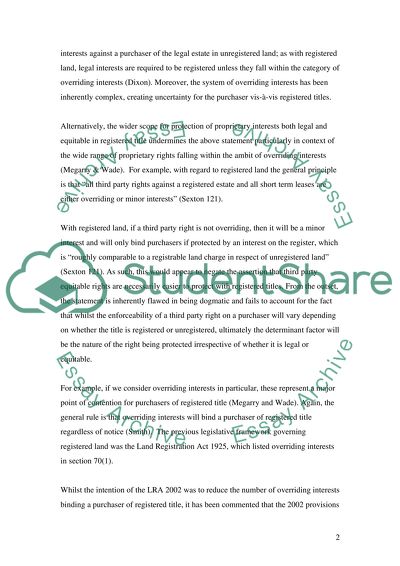Cite this document
(“Land Law Essay Example | Topics and Well Written Essays - 2250 words - 2”, n.d.)
Retrieved from https://studentshare.org/miscellaneous/1547567-land-law
Retrieved from https://studentshare.org/miscellaneous/1547567-land-law
(Land Law Essay Example | Topics and Well Written Essays - 2250 Words - 2)
https://studentshare.org/miscellaneous/1547567-land-law.
https://studentshare.org/miscellaneous/1547567-land-law.
“Land Law Essay Example | Topics and Well Written Essays - 2250 Words - 2”, n.d. https://studentshare.org/miscellaneous/1547567-land-law.


